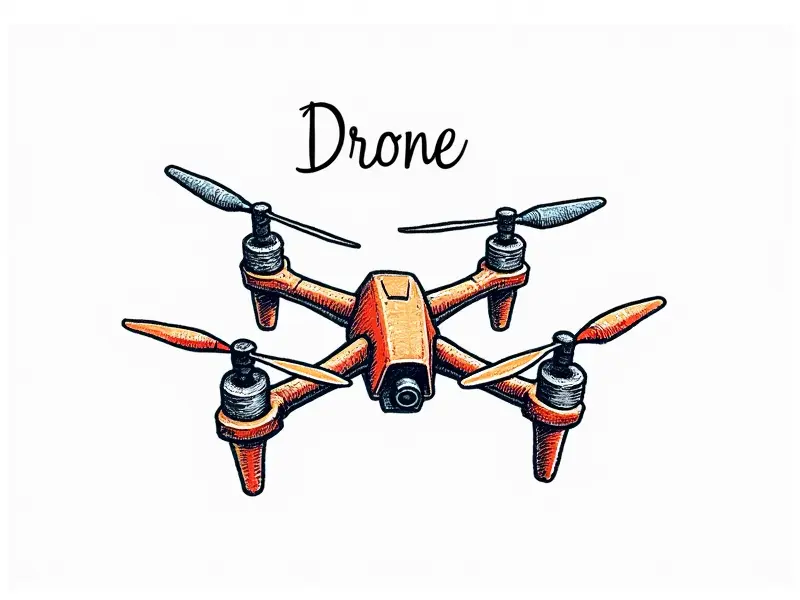Do RC airplanes need insurance?

Radio-Controlled (RC) airplanes are popular among hobbyists and enthusiasts, offering a thrilling way to enjoy aviation without the need for pilot's licenses or expensive aircraft. However, these models can be costly, particularly high-end ones equipped with advanced features like GPS navigation and FPV cameras. The question arises: do RC planes require insurance?
Should You Insure Your RC Plane?
The decision to purchase insurance for your RC plane depends on several factors, including the value of your aircraft, where you fly it, and whether you engage in competitive or exhibition flying. Insurance can provide peace of mind knowing that financial losses from accidents are covered.
Protecting RC Aircraft with Insurance
Insurance policies for RC planes typically cover damages resulting from crashes, theft, and vandalism. They also often include liability coverage to protect you against legal claims if your aircraft causes damage to property or injuries to people during flight.
Types of Coverage Available
- Limited Liability: Provides basic protection for bodily injury and property damage.
- Comprehensive Coverage: Offers broader coverage, including theft, vandalism, and accidental loss or damage.
- Aircraft Hull Insurance: Covers the physical structure of your RC plane against damage.
Must-Have Insurance for RC Flyers
If you frequently participate in competitive events or fly near populated areas where accidents could cause significant harm, comprehensive insurance is highly recommended. Additionally, if you own a fleet of RC planes or rent equipment to others, insurance becomes even more crucial.
Key Considerations When Choosing Insurance
- Aircraft Value: Ensure your policy matches the value of your aircraft.
- Liability Limits: Choose limits that adequately protect you from potential lawsuits.
- Additional Riders: Consider riders for specialized equipment or unique risks.
RC Plane Accidents: The Role of Insurance
In the event of an accident, insurance can help cover repair costs and legal fees. It also provides financial support if your RC plane is damaged beyond repair, allowing you to replace it quickly without significant out-of-pocket expenses.
Common Scenarios Where Insurance Helps
- Crashes During Competition: If your RC plane crashes during a competitive event, insurance can cover the cost of repairs or replacement.
- Theft at Public Events: Theft of your aircraft from public gatherings is often covered by comprehensive policies.
Insurance Tips for RC Aircraft Enthusiasts
To maximize the benefits of insurance and ensure you're adequately protected, follow these tips:
Tips to Consider
- Review Policy Details: Carefully review your policy's coverage limits, deductibles, and exclusions.
- Keep Documentation: Maintain records of all purchases, upgrades, and maintenance for accurate claims assessment.
- Purchase from Reputable Providers: Choose insurers with good track records in the RC community.
RC Airplane Insurance: Pros & Cons
Like any insurance decision, there are advantages and disadvantages to consider when deciding whether to insure your RC plane.
Pros of Insuring Your RC Plane
- Financial Protection: Provides financial security in case of unexpected accidents or incidents.
- Piece of Mind: Reduces stress and anxiety about potential losses due to crashes, theft, or vandalism.
Cons of Insuring Your RC Plane
- Cost: Insurance premiums can add up over time.
- Limited Coverage: Some policies may not cover all types of accidents or damages.
Is Insurance Mandatory for RC Planes?
In most cases, insurance is not legally required to operate an RC plane. However, many clubs, flying fields, and events require proof of liability coverage as a condition of entry. Always check the specific requirements before participating in organized activities.
Safeguarding RC Planes with Coverage
Properly safeguarding your RC airplane through insurance not only protects against financial loss but also enhances safety by encouraging responsible flying practices and adherence to regulations.
Ways to Safeguard Your Aircraft
- Fully Understand Policy Terms: Know exactly what is covered under your insurance policy.
- Maintain Regular Maintenance: Keep your aircraft in top condition to minimize the risk of accidents.
- Follow Flying Regulations: Adhere strictly to local laws and club rules regarding RC plane operation.
RC Airplane Insurance Benefits Explained
The benefits of insuring your RC airplane extend beyond just financial protection. It also includes legal support, access to expert advice in case of claims, and peace of mind knowing that you are prepared for any eventuality.
Main Benefits
- Financial Security: Provides funds for repairs or replacements after accidents.
- Legal Assistance: Offers legal defense if your RC plane causes property damage or personal injury.
- Expert Guidance: Insurers often provide resources and guidance on safe flying practices.
Do Hobbyists Need RC Plane Insurance?
Hobbyist RC pilots should seriously consider insurance, especially if they fly expensive aircraft or in areas with high population density where accidents could lead to significant liability issues. Even for less costly models, the peace of mind and financial security offered by insurance are invaluable.
Conclusion
In conclusion, while RC airplanes do not legally require insurance, it is highly advisable to have coverage given the potential risks involved in flying these aircraft. By understanding your policy options and choosing appropriate levels of protection, you can enjoy your hobby with greater confidence and security.

